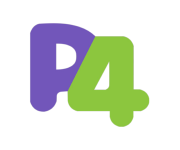Contributed by Deb Chatterjee, Intel
We are excited to usher in the dawn of a new era for the P4 programming language. For many years, the Tofino family of programmable Ethernet switches, powered by P4, has represented the cutting edge of network innovation. Tofino’s unprecedented levels of programmability have enabled organizations to shape their networks like never before. But there was always one limitation: the software driving this groundbreaking hardware remained closed source. Today, that changes. The Tofino P4 software is being open-sourced, and it’s about to revolutionize how we think about programmable networks.
This bold move from Intel to open-source the Tofino P4 software is more than just a licensing decision; it’s a call to action for the global developer community. It invites everyone—from seasoned network engineers to aspiring students—to participate, innovate, and contribute to shaping the future of networking. The open-sourcing of Tofino P4 code democratizes access to some of the most powerful tools in networking. Developers can now dive deep into the workings of Tofino switches, experiment with custom data plane designs without restrictions, and share and build upon others’ innovations to create groundbreaking solutions, utilizing the power and strength of an open-source community.
Open source thrives on collaboration. By releasing the Tofino P4 code, we’re creating a community where developers can propose and implement new features, researchers can experiment with cutting-edge ideas in programmable networking, and educators can use open-source tools to train the next generation of network engineers. Traditionally, access to high-performance network programming tools has been limited by closed-source software, high costs, or proprietary restrictions. Open-sourcing Tofino P4 removes these barriers, allowing anyone with the curiosity and skills to participate. This democratization is a game-changer for startups, academic institutions, and developers in underrepresented regions. Aspiring P4 developers can now explore, dissect, and learn from production-grade software. This real-world exposure will be valuable for understanding how P4 programming operates at scale. Educational institutions can even build programming curricula around this. In the words of Brad Burres, Intel Senior Fellow, “open sourcing software is the best way to accelerate industry innovation and lift all boats”. Nanda Kuruganti, Intel VP of Networking SW, points out that “P4 programming and an open ecosystem are the cornerstones of our networking strategy. By open-sourcing Tofino P4 software, we aim to empower the community to drive innovation and unlock the full potential of programmable networks.”
Developers now have access to the entire source code, which is organized in two main repos inside the p4lang structure. The p4c repo now additionally contains the Tofino compiler components, with subfolders such as arch, common, control-plane, driver, midend, test and docs. The Tofino backend is hierarchically at the same level as bmv2, ubpf and other backends. The newly introduced open-p4studio repo contains all the other components of the Tofino P4 Studio, such as bf_driver, bf_diags, bf_utils and tofino_model.
We are immensely grateful to the following individuals within Intel who worked on the open sourcing effort – Glen Gibb, Han Wang, Prathima Kotikalapudi, Anil Samal, Vaishnavi Tipireddy, Shiv Kumar, Shuai Zhang, Rohit Nair, and Sai Pracheetha Beeyam. We also benefited immensely from the guidance from the P4 Technical Steering Committee members, Fabian Ruffy and Andy Fingerhut.
The open-sourcing of Tofino P4 software is not just a milestone—it’s an invitation. It’s a call for developers, researchers, educators, and network enthusiasts to come together and shape the future of programmable networking. We encourage developers to dive into the repository, read the code, and understand how Tofino P4 works. The more they learn, the more they can contribute. Whether it’s fixing bugs, adding features, or improving documentation, every contribution helps the community grow.
We are asking P4 enthusiasts all over the world to spread the word about the open-sourcing of Tofino P4, and encourage their peers, colleagues, and organizations to join the P4 movement.
